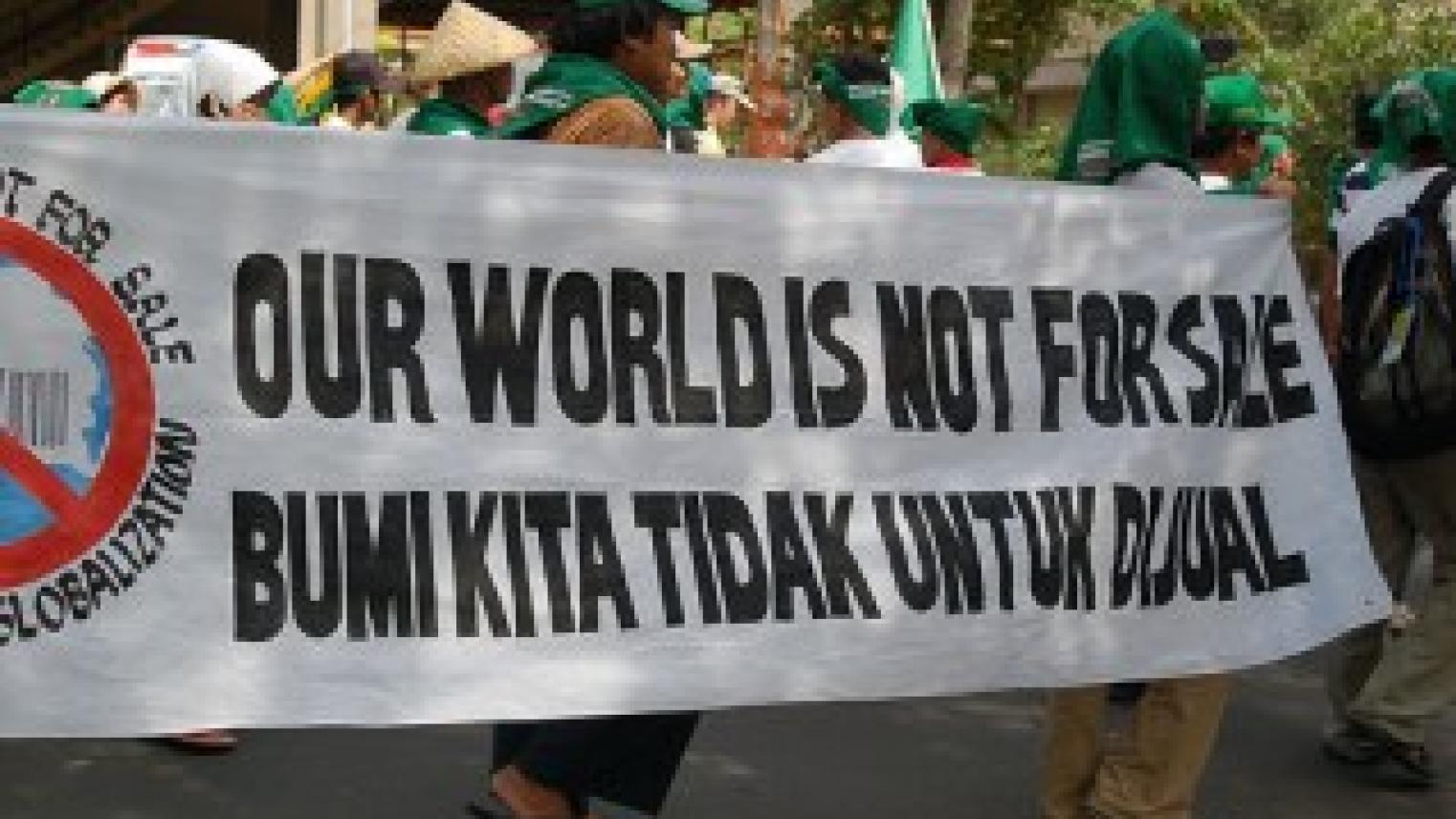Each year the ANU Indonesia Institute marks International Human Rights Day by bringing together experts from Indonesia and around the world to discuss a current and pressing human rights problem. This annual seminar has become an important event on the ANU calendar. Our 2023 Human Rights Day seminar will focus on the state of environmental rights in contemporary Indonesia.
Indonesia's frontier regions have undergone drastic socio-ecological transformations. Beyond the well-known Java and Bali islands, these outer islands have seen extensive large-scale land acquisitions, propelled by surging global demand for food, fibre, and critical minerals. These developments have profoundly altered the environmental and social fabric of rural areas. Across the nation, a troubling escalation in land conflicts and the criminalization of community and Indigenous leaders has become evident. This situation extends to Indonesia's fisheries sector, where illegal fishing and the persistence of modern human slavery continue to afflict impoverished coastal communities and small-scale fishermen.
To mark International Human Rights Day, this seminar will delve into three crucial sectors in Indonesia: palm oil plantations, nickel mining, and fisheries. Our discussion will explore the intricate connections between these sectors and the transformations in community livelihoods, labor practices, as well as the complex web of socio-environmental rights and conflicts that ensue.
PANEL PRESENTERS:
- Professor Ward Berenschot, The Koninklijk Instituut voor Taal-, Land- en Volkenkunde / Royal Netherlands Institute of Southeast Asian and Caribbean Studies (KITLV) at Leiden - Conflict and violence in palm oil plantations
- Ms Fadilla Octaviani, Indonesia Ocean Justice Initiative - Human and environmental rights at sea
- Anto Sangadji, PhD, Mineral, Energy, and Labor Transformation Research Group - Mining nickel for the climate
The presenters will discuss the following prompting questions:
- Please identify socio-environmental rights or justice issues currently facing the plantations/mining/fisheries sector. Who are the winners and losers? / Whose rights are under threat?
- What policies or initiatives have been implemented to protect human and environmental rights? What has been effective or ineffective, and why?
- What are the implications of these complex issues for environmental rights research or policy advocacy in Indonesia?
